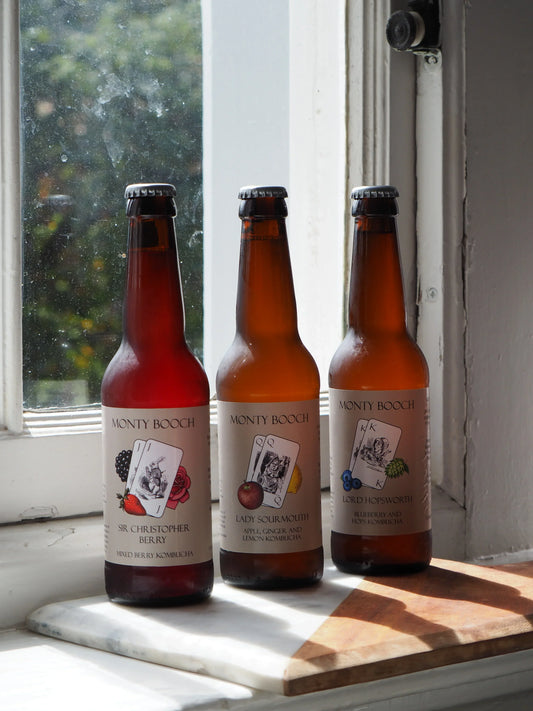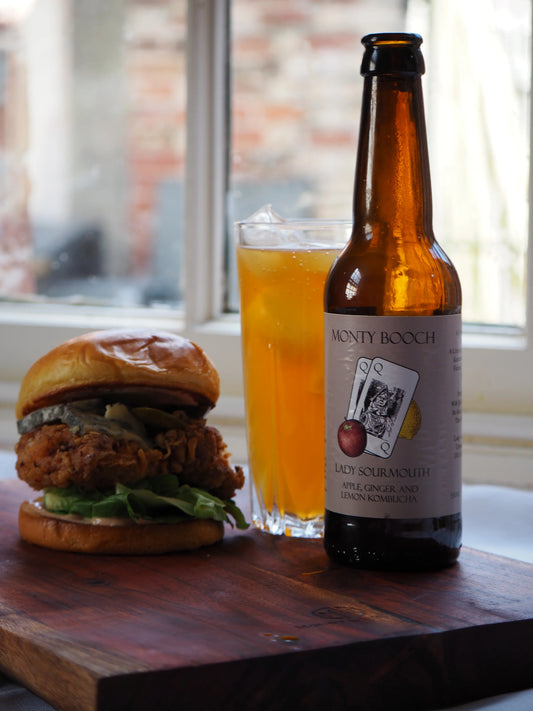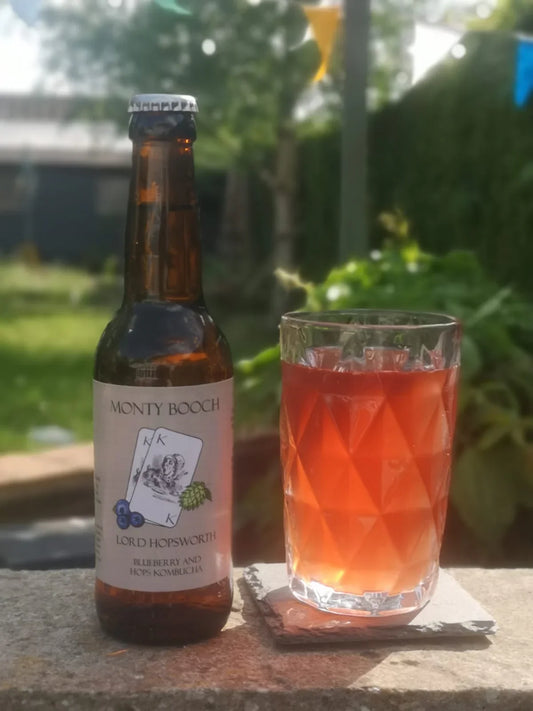
Kombucha Caffeine - Does Kombucha Contain Caffeine?
Does Kombucha Contain Caffeine?
Kombucha has become a popular drink for those seeking a refreshing, probiotic-rich alternative to sodas and sugary beverages. But if you’re sensitive to caffeine or looking to cut down on your intake, you might be wondering: Does kombucha contain caffeine? The short answer is yes, but in small amounts. Let’s explore where this caffeine comes from, how much is typically present, and what that means for you.
Where Does the Caffeine in Kombucha Come From?
Kombucha is traditionally brewed using black or green tea, both of which naturally contain caffeine. The fermentation process, where tea is combined with sugar and a SCOBY (Symbiotic Culture of Bacteria and Yeast), alters many of its properties but does not remove caffeine entirely.
The yeast in the SCOBY helps break down compounds in the tea, and some caffeine content is reduced during fermentation. However, a portion of the caffeine remains in the final product. The amount of caffeine present depends on several factors, including the type of tea used, how long it’s brewed, and the fermentation process itself.
How Much Caffeine Is in Kombucha?
The caffeine content in kombucha varies, but in general, it contains significantly less caffeine than a standard cup of tea or coffee. Here’s a rough comparison:
-
Regular black tea (8 oz) – 40-70 mg of caffeine
-
Regular green tea (8 oz) – 20-45 mg of caffeine
-
Coffee (8 oz) – 95-165 mg of caffeine
-
Kombucha (8 oz) – 8-15 mg of caffeine
Most kombucha contains around ⅓ to ½ the caffeine of the tea it was brewed from, making it a lower-caffeine alternative to traditional tea or coffee. However, some kombucha brands may have higher or lower caffeine levels depending on their brewing process and the tea used.
Can You Get Decaffeinated Kombucha?
Yes! There are a few ways to enjoy kombucha with little to no caffeine:
-
Using Decaffeinated Tea: Some kombucha brewers use decaf tea as a base, which significantly reduces caffeine content.
-
Herbal Tea Kombucha: Since herbal teas don’t contain caffeine, kombucha made from ingredients like hibiscus or rooibos may naturally be caffeine-free.
-
Longer Fermentation: A longer fermentation process can sometimes lead to a reduction in caffeine, as the bacteria and yeast may consume some of it over time.
Does Kombucha’s Caffeine Affect You Like Coffee or Tea?
Even though kombucha contains some caffeine, the way your body processes it may feel different compared to drinking a cup of coffee or tea. This is because kombucha also contains L-theanine, an amino acid found in tea that promotes relaxation and counteracts the jittery effects of caffeine. As a result, kombucha provides a gentle energy boost rather than the intense spike and crash that can come with coffee.
Additionally, kombucha contains probiotics and organic acids that support digestion, which may help balance the way caffeine is absorbed in your body. Many people find that drinking kombucha leaves them feeling refreshed and alert without the overstimulation that caffeine can sometimes cause.
Who Should Be Careful About Kombucha’s Caffeine Content?
While the caffeine in kombucha is relatively low, some people may still want to limit or avoid it:
-
Pregnant or Breastfeeding Women – Many healthcare providers recommend limiting caffeine intake during pregnancy. While kombucha’s caffeine levels are low, those who are sensitive should opt for caffeine-free versions.
-
People with Caffeine Sensitivity – If you’re highly sensitive to caffeine, even the small amounts in kombucha could cause jitters or sleep disturbances.
-
Those Avoiding Caffeine for Medical Reasons – Some medical conditions, such as acid reflux, anxiety, or heart issues, may require you to cut back on caffeine. If this applies to you, look for caffeine-free kombucha options.
Final Thoughts: Should You Worry About Caffeine in Kombucha?
For most people, the caffeine content in kombucha is low enough that it won’t cause any issues. It’s a great alternative to high-caffeine drinks like coffee or energy drinks while still offering a slight pick-me-up. However, if you’re highly sensitive to caffeine or need to avoid it for medical reasons, there are plenty of low-caffeine or caffeine-free kombucha options available.
If you love the taste and benefits of kombucha but want to keep your caffeine intake in check, experiment with different brands and brewing methods to find the perfect balance. Cheers to enjoying kombucha in a way that works best for you!




